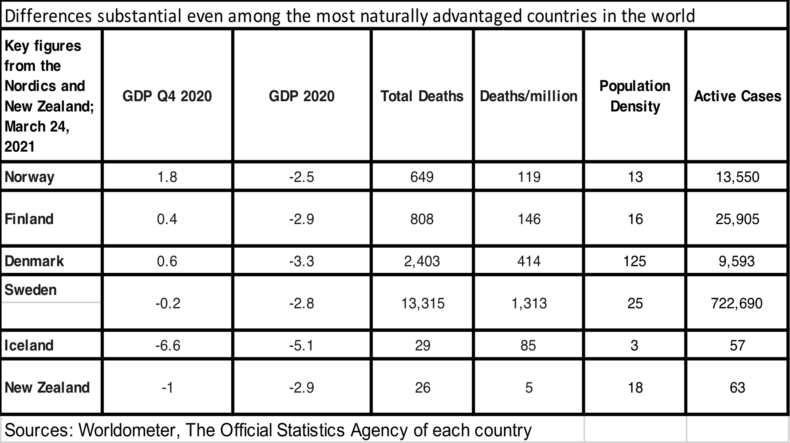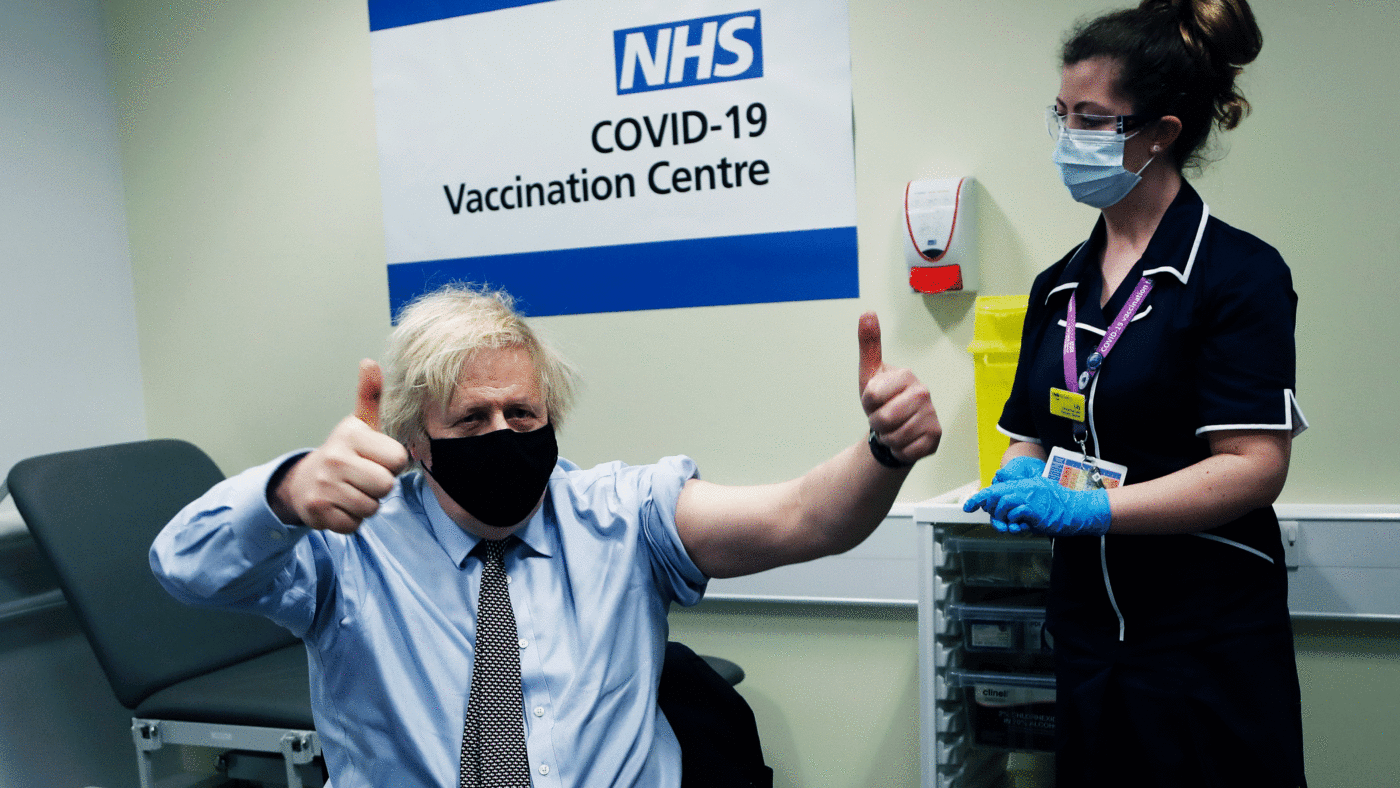What country in the world has, really, been best at tackling the coronavirus? There is no way to tell for sure. It is, however, possible to consult the court of international public opinion. This is precisely what British brand valuation company Brand Finance did when weighing in coronavirus sentiment for its yearly Global Soft Power Index.
It turns out that, in the eyes of the world, New Zealand tackled the coronavirus best of the 105 countries ranked (public opinion was surveyed towards the end of the year so largely before the vaccine miracle). The country ending up at the very bottom in the coronavirus category? The US. Germany captured the top spot as the world’s leading soft power, boosted by a third place in the coronavirus category. The UK? It’s complicated.
.

.
Public opinion measures to what degree hearts and minds are won over, but that doesn’t necessarily mean it’s always right. For example, New Zealand has indeed managed to contain the virus but does it really deserve the gold trophy in the coronavirus competition?
It is, after all, an island country with no close neighbours. It also has a remarkably low population density (18 per Km2 compared to 281 in the UK), an outdoor oriented life-style and only one large(ish) urban centre (Auckland with its 1.5 million population). When a country is naturally well placed to tackle a crisis like coronavirus – like New Zealand – it should compare well. But fourth quarter GDP numbers reveal that the NZ economy does not compare particularly favourably with other naturally advantaged countries.
Public opinion might also be clouded by preconceptions. During a recent Global Soft Power Summit, also arranged by Brand Finance, it was suggested that Germany is typically seen as a country of science, which makes us prone to give the country high marks during a ‘scientific crisis’. Conversely, Donald Trump tends to be seen as a “baddie” and is graded poorly as a result.
Even more noteworthy is that Sweden ended up with a decent rank in the coronavirus category (16). Even though the similarities between the ‘relaxed’ approaches in Sweden and the US (under Trump) have been much more striking than either side wants to admit. The Swedish coronavirus rank does end up lower than Denmark, Norway and Finland but not significantly so. Despite the fact that four out of five Nordic deaths are Swedish and all Nordic countries enjoy massive natural advantages.

.
So, again, why was Sweden perceived so much more favourably than the US, at least during 2020? There is every reason to think that a strong country brand at the outset of a crisis (like the Swedish brand) builds resilience against negative facts (not least while the country is offered the benefit of the doubt). Whereas a controversial brand (USA under Trump) does the very opposite.
That brings us to the UK, which ranks 37 in the coronavirus category (again this opinion snapshot was taken before the vaccine success), behind Belgium, the Czech Republic and Slovenia (all with higher death rates than UK). Indeed Britain ended up below most countries in Europe, as well as China.
Is this rank fair given that countries on the planet have been dealt a poorer hand?
For one thing, the UK is the third most densely populated country in Europe after the Netherlands and Belgium (and excluding the small city-states). London is also Europe’s largest urban centre and one of the world’s global travel hubs. As if that’s not bad enough, the UK was also the first country to be severely hit by the virus mutation.
Despite this trio of highly unlucky circumstances few commentators have cut the Government much slack. Labour has routinely played the government-is-incompetent-card, while offering little detail about what it would have done differently. At the same time, many EU movers and shakers have worked fervently to ensure that international public opinion regards ‘Brexit Boris’ as synonymous with just about everything appalling. There is every reason to suspect that if an international darling like David Miliband had been in Downing Street – and tackled the coronavirus precisely like Boris Johnson – the UK would be seen far more positively.
Should the UK take any positives?
Actually, three massive positives. Firstly, though Team Boris has been judged unfairly harshly in comparison with most governments, the unique British lack of deference has also helped keep Downing Street on its toes. Only in the UK do government ministers face an almost contemptuous ‘yeah-right’ attitude during press conferences. Compare this with the carefully choreographed press conferences and ‘if-you-say-so’ attitude at the courts of empresses Angela Merkel and Ursula von der Leyen.
Secondly, returning to the Soft Power Index, the UK did manage to defend its overall bronze position in the world rankings. That’s despite its meagre ranking in the Covid category and EU’s efforts to portray the UK as a country of uneducated throwbacks. This reveals that even short term there is, fortunately, a limit to how much public opinion can be manipulated – not only nationally but also internationally.
Finally, since the UK government has acted responsibly until now it really might be perfectly possible to reap the rewards – by relaxing restrictions – even quicker than presently planned. Just about everyone vulnerable has already been injected. Death rates are dropping by the day, as are hospital admissions. We have all turned into mini-experts on dealing with the residual risk. The sweetness of normality is in the air. Boris knows this and we should probably not be too surprised if he is already planning a, hmmm, surprise.
Click here to subscribe to our daily briefing – the best pieces from CapX and across the web.
CapX depends on the generosity of its readers. If you value what we do, please consider making a donation.


